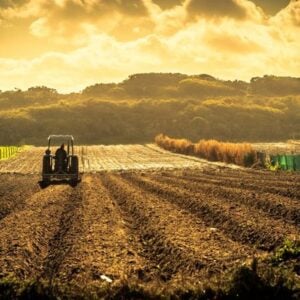The UK Government has successfully completed a major investment in the future of farming by allocating £150 million through its Capital Grants programme. This funding round, designed to support sustainable food production and environmental improvements, has seen record participation, with over 8,000 applications submitted in under five weeks—making it the fastest uptake of such an offer to date. The rapid response demonstrates the agricultural sector’s strong interest in adopting nature-friendly farming practices.
A key factor behind the programme’s widespread reach is the implementation of funding thresholds, which have allowed more farmers than ever to access support. This approach ensures that all available funds go directly to farmers, helping them enhance productivity while protecting the environment. Among the most in-demand grants are those aimed at reducing agriculture’s impact on water quality, such as upgrades to prevent agricultural runoff and fencing to keep livestock out of water bodies.
The initiative also promotes environmental stewardship by supporting biodiversity-enhancing activities like hedgerow planting and habitat restoration. Practical improvements such as shelterbelt planting to improve air quality further highlight the programme’s commitment to sustainable farming and long-term resilience.
Minister for Food Security and Rural Affairs, Daniel Zeichner, praised the momentum behind nature-positive farming and reiterated the government’s pledge to ensure that farm businesses remain profitable while adopting eco-friendly practices.
Defra maintained transparency throughout the process by regularly updating the farming community as the fund neared full allocation, with milestones communicated at 50% and 75% uptake. Approved applicants will receive payments upon completion of their funded projects and submission of claims.
Looking ahead, the government reaffirmed its commitment to Environmental Land Management schemes, which it views as essential to supporting the sector’s transition to sustainable and profitable agriculture. Funding for these schemes will increase significantly—from £800 million in 2023/24 to £2 billion by 2028/29.
In addition to funding, the government is also addressing systemic challenges by reducing export-related costs and regulations for food producers, expanding public sector food procurement for farmers, and launching strategic reviews led by industry experts like former NFU president Baroness Minette Batters. In total, a record £11.8 billion is being invested in sustainable farming and food production during this parliamentary term.







